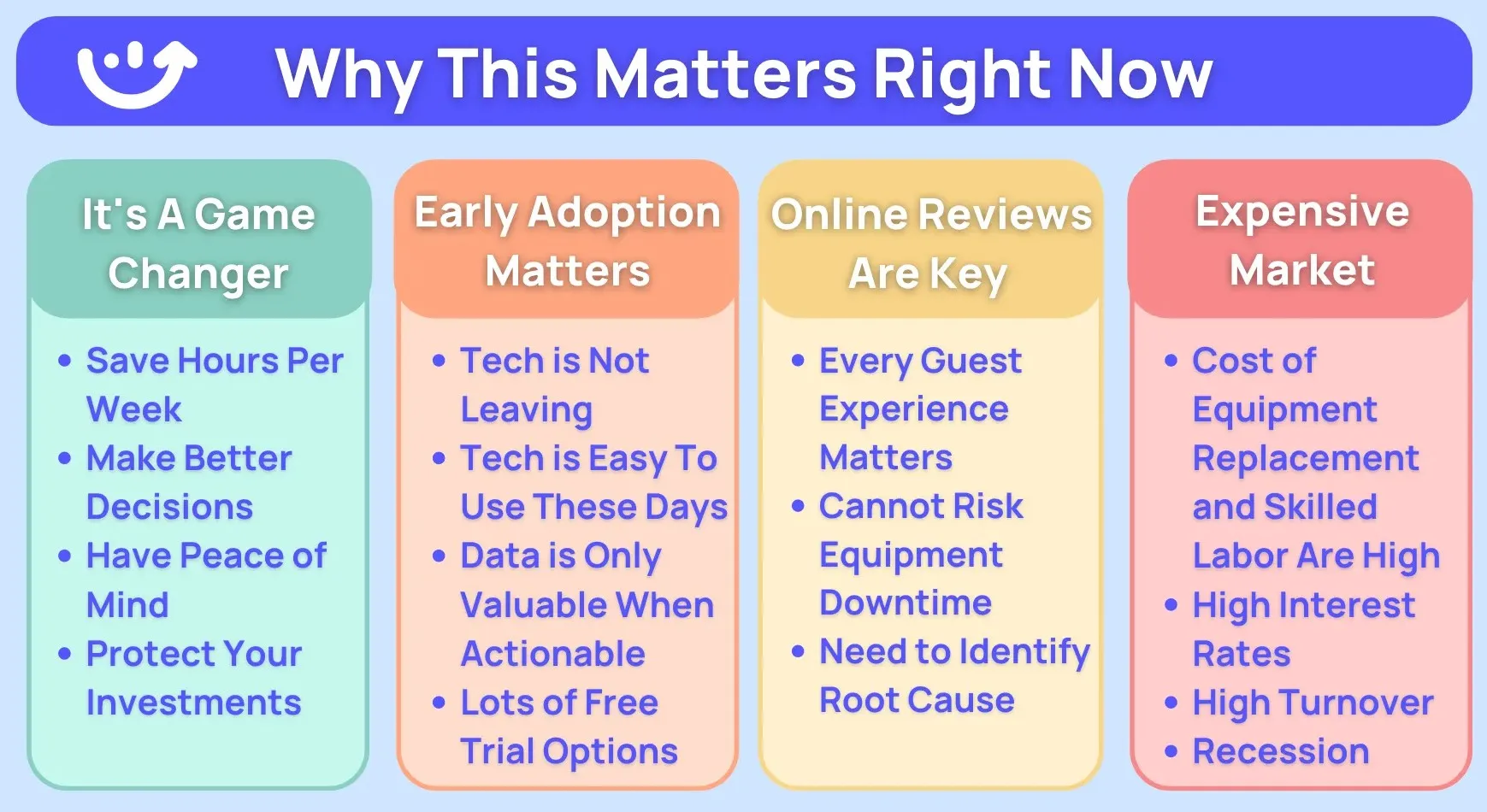An equipment mechanic is a rewarding career of ensuring commercial equipment is adequately maintained and in good working order. There is a growing demand for skilled technicians as more and more companies rely on sophisticated machinery to drive their operations. In fact, production and safety can suffer without qualified technicians. So much so that a poor maintenance strategy can reduce output by up to 20%.
.svg)

Priced on per user or per location basis
Available on iOS, Android and Web
Equipment Mechanic Job Description
An equipment mechanic is a skilled tradesperson responsible for maintaining, repairing, and servicing various mechanical and electrical equipment. This includes vehicles and heavy machinery to computerized systems and appliances.
The salary for an equipment mechanic will vary depending on factors such as the type of equipment, the industry, their level of experience, and their location. For example, the U.S. Bureau of Labor Statistics (BLS) lists that the median annual wage for heating, air conditioning, and refrigeration mechanic was $48,630 in 2020.
You will typically need a high school diploma or equivalent to fulfill this role. Many equipment mechanics also complete vocational training or an associate's degree in a related field. Some employers may also require certification, such as the Certified Technician program offered by the National Institute for Automotive Service Excellence (ASE).
🔧 Responsibilities of Equipment Mechanics
- Diagnosing problems with equipment using technical manuals, diagnostic tools, and their knowledge and experience
- Repairing or replacing faulty parts and components
- Performing routine maintenance tasks such as oil changes, fluid level checks, and belt replacements
- Testing equipment to ensure it is operating correctly
- Keeping accurate records of work completed and parts used
- Ordering parts and supplies as needed
- Communicating with clients or customers to explain the work that needs to be done and answer any questions or concerns
- Following safety guidelines and procedures when working with equipment
👨 Skills Needed to Be an Equipment Mechanic
Being an equipment mechanic requires a combination of technical skills, knowledge, and experience. These professionals are responsible for the repair, maintenance, and installation of a wide range of mechanical equipment, including engines, pumps, motors, and other types of industrial machinery. They must have a solid understanding of mechanical systems and be able to diagnose and troubleshoot problems. Additionally, they must have the ability to read and understand technical manuals, schematics, and other documentation.

🦾 Mechanical aptitude
Requires having a solid understanding of how mechanical systems work.
🧩 Problem-solving abilities
Must be able to troubleshoot problems and think critically to find solutions.
👀 Attention to detail
Equipment mechanics must be meticulous in their work, as even small mistakes can have serious consequences.
🙌 Manual dexterity
Equipment mechanics often work with small parts and tools, so they must have good hand-eye coordination and manual dexterity.
🖥️ Computer skills
Many types of equipment now have computerized systems, so equipment mechanics may need to be proficient in using computers to diagnose problems and troubleshoot issues.
🗣️ Communication skills
Must effectively communicate with clients or customers to explain the work that needs to be done and answer any questions or concerns.
🦺 Safety skills
You must follow safety guidelines and procedures when working with equipment to prevent accidents or injuries.
Training and education are essential for developing these skills and gaining the knowledge needed to be an influential team member.
Vocational programs can provide hands-on training and coursework in electrical systems, diesel technology, and industrial maintenance. Look at this HVAC schools guide showcasing a certified technician program directory.
On-the-job experience is also valuable for gaining practical skills and knowledge. Many of these professionals start as apprentices or technicians and work their way up to becoming fully qualified mechanics.
Career Path Guidance: Specialized vs General Maintenance
As an equipment mechanic, one can specialize in a specific type of machinery or equipment or focus on general maintenance tasks. Specialization allows the mechanic to become an expert in the specific type of equipment they work on, allowing them to quickly diagnose and repair problems. This can lead to more efficient and effective repairs, which can save time and money for the employer. On the other hand, a generalized maintenance approach allows the mechanic to work on a wider range of equipment, making them more versatile and adaptable. This can be beneficial for employers who have a diverse range of machinery and equipment that needs maintenance. In this article, we will explore the pros and cons of specialization versus generalized maintenance as an equipment mechanic and which approach may be best for different types of organizations and job roles.

😃 Benefits of equipment mechanic specialization
Improved expertise
By specializing in a particular type of equipment or industry, equipment mechanics can develop a deep understanding of the specific systems and technologies they work with, which can help them identify and solve problems more effectively.
Greater job security
Specialization can help equipment mechanics become more valuable to their employers and make them more likely to retain their job in the face of economic downturns or changes in the job market.
Greater earning potential
Equipment mechanics who specialize in a particular area may be able to command higher salaries due to their increased knowledge and expertise.
Improved job satisfaction
Equipment mechanics who specialize in a particular area may find their work more rewarding and fulfilling, as they can focus on the specific aspects of their job that interest them most.
😓 Downside of equipment mechanic specialization
Limited job opportunities
Specialization may limit the job opportunities available to equipment mechanics, as they are only qualified to work with a particular type of equipment or in a specific industry.
Reduced flexibility
Specialized equipment mechanics may need more flexibility regarding the types of jobs they can take, as they are only qualified to work with a piece of specific equipment or within a particular industry.
Difficulty adapting to new technologies
Equipment mechanics specializing in a particular area may face challenges when adapting to new technologies or systems, as they may need to gain experience working with them.
Potential for obsolescence
Specialization in a particular area may make equipment mechanics more vulnerable to obsolescence if their area of expertise needs to be updated by new technologies.

😃 Benefits of general equipment mechanics
Greater job opportunities
General equipment mechanics may have a broader range of job opportunities available, as they are not limited to working with a specific type of equipment or in a particular industry.
Increased flexibility
General equipment mechanics may have more flexibility regarding the types of jobs they can take, as they are not limited to working with a piece of specific equipment or within a particular industry.
Opportunity to learn
Working as a general equipment mechanic can provide the opportunity to learn about a wide range of equipment and systems, which can be valuable for personal and professional development.
Greater adaptability
General equipment mechanics may be more adaptable to new technologies and systems as they have experience working with various equipment.
😓 Downside of general equipment mechanics
Lower earning potential
General equipment mechanics may have lower earning potential than those who specialize in a particular area, as they may have a different level of expertise.
Increased competition
There may be more competitive with a larger pool of generalized candidates.
Greater difficulty in troubleshooting
General equipment mechanics may need help troubleshooting problems with equipment, as they may have a different level of expertise than those who specialize in a particular area.
Ultimately, the decision between specialization and generalized maintenance will depend on an individual equipment mechanic's goals, interests, and career aspirations.
Types of Equipment Mechanic Jobs and Industries
Equipment mechanics are skilled professionals who work to repair and maintain a variety of machinery and equipment across various industries. They are responsible for keeping equipment running smoothly and efficiently, preventing breakdowns and downtime. This article will explore the different industries that employ equipment mechanics and the types of equipment they work on. According to data from the U.S. Bureau of Labor Statistics (BLS),

🚧 Construction
Technicians typically tackle heavy machineries such as bulldozers, excavators, and cranes.
🚜 Agriculture, forestry, fishing, and hunting
Mechanics will focus on tractors, combines, and other farm machinery.
🚚 Transportation and warehousing
Equipment maintenance usually includes vehicles such as cars, trucks, buses, and airplanes.
🏭 Manufacturing
Manufacturing plants have various equipment, including conveyor systems, assembly line machinery, and robotic systems, that require specialized technicians.
🏬 Wholesale trade
Equipment mechanics in the wholesale trade industry work on everything from forklifts to material handling equipment.
🏪 Retail trade
Retail technicians will maintain outdoor power equipment and appliances.
These industries are among the top employers of equipment mechanics, but they may also work in other sectors such as the military, healthcare, energy, mining, and waste management.
Types Of Equipment in Need of Mechanics
Equipment mechanics work on a wide range of machinery and equipment, from small engines to large industrial machines. This includes but is not limited to: heavy machinery, power generators, vehicles, process equipment, production machinery, and many more. These professionals must have a solid understanding of mechanical systems, and be able to diagnose and troubleshoot problems. They must also have the ability to read and understand technical manuals and schematics. In this article, we will explore the different types of equipment that equipment mechanics work on, and the skills and knowledge required to be proficient in working with each type of equipment.

🏗️ Heavy machinery
This includes a variety of large industrial machinery used in construction, agriculture, and manufacturing industries. Examples of heavy machinery that equipment mechanics may work on include bulldozers, cranes, excavators, and forklifts.
🚗 Vehicles
Equipment mechanics may work on various vehicles, including cars, trucks, buses, and airplanes. They may be responsible for maintaining and repairing engines, electrical systems, and other mechanical components.
💻 Computerized systems
Many types of equipment now have computerized systems, and equipment mechanics may be responsible for diagnosing and repairing problems with these systems. This can include everything from simple wiring issues to more complex computerized systems.
📺 Appliances
Equipment mechanics may also work on refrigerators, washing machines, and dryers. They may be responsible for diagnosing and repairing problems with these types of equipment.
In addition to these types of equipment, skilled technicians may work on smaller, specialized equipment, such as lawnmowers, snow blowers, and outdoor power equipment.
Best Online Equipment Mechanic Resources
Being an equipment mechanic requires a combination of technical skills, knowledge, and experience. However, the industry is constantly evolving, with new equipment and technology being developed, and older equipment becoming obsolete. To be the best they can be, equipment mechanics must stay current with these changes and be willing to continuously learn and adapt. This could include attending training sessions, workshops, or classes, reading industry publications, or even self-study.

👥 Industry associations and professional organizations
These organizations often provide resources and networking opportunities for equipment mechanics, including access to technical information and training materials.
Examples include the United Appliance Servicers Association and the Association of Home Appliance Manufacturers (AHAM).
🌐 Online forums and communities
Connect with colleagues and seek advice from other professionals through online forums and communities, such as LinkedIn or Reddit. There are also specialty communities such as Heavy Equipment Forums and Shop Floor Talk
🖥️ Manufacturer websites
Many manufacturers offer resources specifically for service technicians, including technical manuals, troubleshooting guides, and training materials.
🏋️ Online training and certification programs
There are a number of online programs and courses that equipment mechanics can take to improve their skills and knowledge. Here are a few:
🎙️ Blogs and podcasts
Many blogs and podcasts focus on equipment maintenance and repair, which equipment mechanics may find informative and valuable.
LinkedIn’s 2020 Emerging Jobs Report shows that the number 1 job ranked in growth is related to artificial intelligence. This involves expediting technology related to machine learning.
Therefore, it's worth noting that equipment mechanics must keep up to date with industry developments and new technologies by continuing their education and improving their skills.
Benefits of a CMMS System for Equipment Mechanics
A CMMS, or computerized maintenance management system, is a software tool that helps maintenance professionals manage the maintenance and repair of equipment and facilities. It is designed to streamline and automate many of the tasks involved in maintenance and repair, including scheduling, tracking, and reporting.
🔑 Key Features and Capabilities of a CMMS
⌚ Real-time tracking and monitoring of equipment
Allows equipment mechanics to track equipment's location, condition, and performance in real time, enabling them to identify problems and schedule maintenance or repairs as needed.
📲 Mobile access
Many CMMS systems offer mobile access, enabling equipment mechanics and maintenance professionals to access and update information on the go.
🗓️ Preventive Maintenance scheduling
A CMMS can automatically schedule maintenance tasks based on predetermined intervals or conditions and dispatch the jobs to the appropriate technicians or mechanics.
🔧 Work order management
Create, track, and complete work orders, including scheduling, assigning tasks and tracking progress.
📈 Data analysis and reporting
Can generate reports and analyze data on equipment performance, maintenance activities, and labor costs, helping equipment mechanics and maintenance professionals identify trends and areas for improvement.
📦 Inventory management
Easily manage spare parts and supplies inventory, including tracking usage and restocking as needed.
There are several benefits to using a CMMS for equipment mechanics and maintenance professionals.

👍 Benefits of a CMMS
🎯 Improved efficiency and accuracy
A CMMS can help equipment mechanics, and maintenance professionals track and manage maintenance tasks more efficiently and accurately, reducing the risk of missed or overdue tasks.
💰 Reduced labor costs
By automating many of the tasks involved in maintenance and repair, a CMMS can help reduce labor costs and increase productivity.
🗣️ Enhanced communication and collaboration
A CMMS can help improve communication and collaboration among equipment mechanics and other maintenance professionals, enabling them to work more effectively as a team.
😄 Enhanced customer satisfaction
A CMMS can help improve customer satisfaction and reduce downtime by ensuring that equipment is well-maintained and performs reliably.
Frequently Asked Questions
Got a question? Find our FAQs here. If your question hasn't been answered here, contact us.

Looks like there's no data available in our FAQ section at the moment.

.svg)
.webp)
%201%20(1).webp)







.svg)
%201%20(2).webp)










